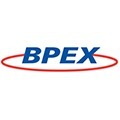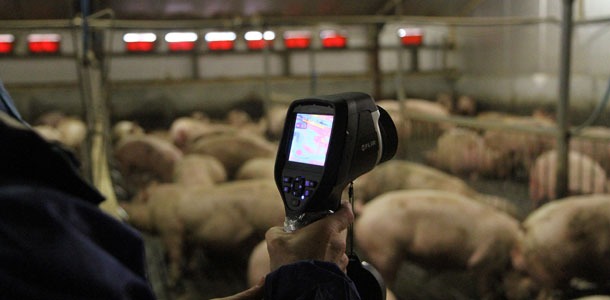 BPEX is now using thermal imaging to help assess the condition of pig housing as part of its ‘closing the gap strategy’.
BPEX is now using thermal imaging to help assess the condition of pig housing as part of its ‘closing the gap strategy’.
“The consequences of poor ventilation and thermal management can have a huge effect on pig development, health and behaviour,” says Thomas Burling, BPEX building and environment business support.

“For this reason, BPEX has invested in a thermal imaging camera, and the environment team has been trained how to use it out on-farm to map heat energy loss from pig buildings, while monitoring housing conditions.”
He adds that the camera has already been trialled successfully in farm situations and has highlighted areas of housing with defective insulation, 'thermal bridges', and draughts.
“The camera is most efficient when there are big differentials in temperature. Therefore, we’re encouraging anyone interested in thermal imaging of their buildings to get in touch with us as soon as possible if they’d like to arrange a visit during this winter period.
“While the camera doesn’t hold the answer to the problem, it helps identify the issues which can often have complex causes. And, once identified, we can then discuss any issues with producers to help them better understand their housing.
“Ideally, we want producers to be better informed in order to make decisions or discuss improvements with potential suppliers.”
Thomas adds that the key goal of the work is to improve pig production efficiencies and the health and welfare of the livestock on a unit. “If issues can be resolved it should also improve on-farm energy efficiency and ultimately reduce energy bills and carbon emissions.”

February 10, 2015 - BPEX



